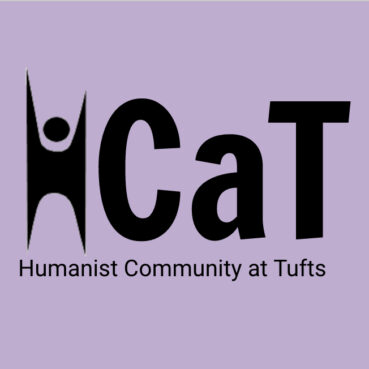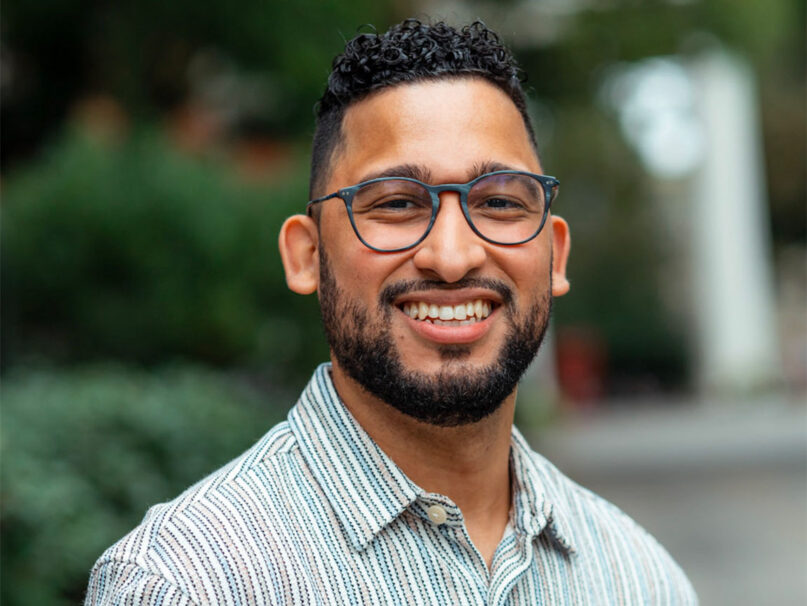((RNS) — Candles are integral to many traditions, from Catholic Mass to Jewish Shabbat celebrations to Buddhist meditation. At Tufts University near Boston, candles are also an uncommon tool of religious pluralism: The Humanist Community at Tufts, a student led community of atheists, agnostics, and others “striving for meaning without boundaries,” as its mission statement states, has sponsored candle making events, where other faith and philosophical groups gather with HCAT members to build community amidst the campus’ religious diversity.
It has become a signature of our community,” said Anthony Cruz Pantojas, 30, the humanist chaplain at the school, who calls the group’s candle making “one of our offerings to the wider Tufts community.” The candles, said Pantojas, who uses they and them pronouns, affirm the humanists’ compassion for their religious counterparts.
Perhaps more surprising still is that the humanists put their candles to use in their own rituals, conducted most Thursday evenings and led by a member of the group, which varies according to the exam schedule but hovers around 20 students.
“What we do pretty much depends on the student who is leading on that day,” said Pantojas. “I open each Thursday meeting with a few words and then participate alongside the students, only taking space as a leader for some closing words.”
The act of meeting itself is part of the ritual aspect of the humanists’ communal spirit. “We prepare, set up the space together, have the activity or conversation, eat together and then clean up together. We build community insofar as we care for our space together, making it special by gathering and also by the regard we show for it and for each other,” said Pantojas.
And just as making candles unites the students in performing a service for the Tufts community, lighting a few of the candles has become a recurrent part of the evening. Creating ritual in community, even if it does not center God, said Pantojas, elevate the group’s time and experience together.
Almost 1 in 10 Americans are atheist or agnostic, but there is much that nonbelievers do believe. As Tufts’ humanist community shows, these nonreligious are also providing a similar sense of belonging, ritual, community service and mutual support, as religious communities have traditionally done — but without the formal hierarchy, prayer or affirmation of a higher power.
Humanism is particularly gaining ground on college campuses, as students ask big questions, explore nonbelief and seek deep friendships. The number of paid humanist chaplains on campus remains in the single digits nationally, and it was not long ago that the news that Harvard University had appointed a humanist as its chief chaplain raised eyebrows.
But as colleges move to serve the 35% of millennials and 40% of Gen Z who say they are religiously unaffiliated, the number of humanist chaplains is growing.

Humanist Community at Tufts logo. Courtesy image
Pantojas recognizes that HCAT is primed to have a larger place on campus and is prepared to support the student population that identifies as agnostic, atheist, freethinking, questioning and humanist with outreach and expanded programming. This fall, they will teach a course titled “The Practice of Being Human: Humanism for Everyday Life,” on what Pantojas calls “the genealogies of Humanist thought.”
Still, Pantojas is among the few humanists to be fully integrated into the chaplaincy staff on an American campus. Their mandate is to care for students, support pluralism and empower humanist students and student leaders. And they are not by any means anti-religious. Pantojas actively encourages humanists to visit and take part in gatherings with other religious communities, viewing it as part of interfaith dialogue and part of one’s exploration as an ethical being.
Pantojas’ own journey to humanism began with — and was enriched by — contact with a range of faiths. Born in Puerto Rico, a Catholic-dominated but highly variegated religious landscape, Pantojas encountered an array of religions, faiths and nontheistic beliefs. This Afro-Caribbean world of faith and free thought, which includes a strong tradition of activism, stamped them with a sense that purposeful community supports “collective flourishing” by way of the “economic, racial and ethnic dynamics.”
But Pantojas took an unexpected first step to humanism by choosing to become a Jew at Temple Beth Shalom, the only Reform synagogue in Puerto Rico. From there Pantojas found a home in Humanistic Judaism, which to Pantojas focuses less on God than on “Jewish civilization and its humanistic expressions.”
The tradition deepened their focus on secular humanism, which they studied at the American Humanist Association Center for Education in Washington, a training center created by the Humanist Institute and the American Humanist Association. It was there that Pantojas began the “journey towards visualizing a career as a professional Humanist in North America,” they said. Their master’s degree in leadership studies furthered their growing identity as a “trans-religious theologian and community activist,” with an interest in “historical legacies of trauma, reparative modes of relating, and alternative epistemes of spirituality and natural inquiry.” These explorations, Pantojas said, are as much personal as professional endeavors.
As different as humanist spiritual exploration sounds to the uninitiated, Pantojas’ work at Tufts would be familiar to almost any campus clergyperson. “After we finish our meeting, I make time for students so that they can express, decompress, deconstruct or share stories that arose in the course of our time together in community. I also make sure that they can have time with me at regular office hours each week.”
Jo Chung, a Tufts student and a board member of HCAT, said, “We recognize that food insecurity is a reality for many, and this semester we are volunteering for Building Audacity to pack meals for families around the Boston area. In the past, we have also participated in environmental cleanup efforts like cleaning up the Fells and the Mystic River.”
But most of all, Pantojas said the humanist community “gives students a place to be,” an important service as students no less than others deal with the epidemic of loneliness in society. While college is often viewed as a time of bonding with new friends, class discussions and, not least, partying, studying can be isolating. Much of the emphasis at HCAT concerns “connecting book learning to the stories that guide our lives and animate us as people,” Pantojas said.
Said Chung: “Even though HCAT is a fairly small group, we acknowledge that we are embedded within a network of relationships with the community around us.”
This story has been corrected. An earlier version inaccurately reported that the Catholic student group at Tufts regularly used HCAT candles at its services. The two groups have participated in events where they made candles together. RNS regrets the error.





